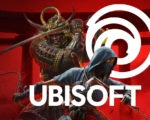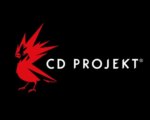Ubisoft’s stock saw a sharp turnaround on Friday, erasing early gains of up to 12% and slipping into negative territory amid speculation that U.S. hedge funds are shorting the stock. By 14:51 GMT, shares were down around 1%, having earlier dropped as much as 6% after the initial surge.
The volatility followed Ubisoft’s announcement of a major restructuring plan involving the creation of a new subsidiary to consolidate three of its top video game franchises: Assassin’s Creed, Far Cry, and Tom Clancy’s Rainbow Six. The move is designed to unlock value and reduce debt, but market reactions were mixed.
. Tencent Buys In, But Debt Payoff Underwhelms for Some
Chinese tech giant Tencent has agreed to invest €1.16 billion ($1.26 billion) for a 25% stake in the newly created unit, which Ubisoft says is valued at approximately €4 billion. While the deal marks a significant capital injection and strategic partnership, analysts noted that Ubisoft only plans to use €500 million from the deal to pay down its €1.1 billion debt—raising concerns among traders.
Barclays analysts said that if the transaction closes by the end of 2025, Ubisoft’s debt load will become more manageable. However, a trading source cited by an analyst told Reuters that hedge funds are shorting the stock, possibly due to dissatisfaction with the limited debt reduction.
. Mixed Sentiment Despite Long-Term Strategic Potential
Ubisoft framed the restructuring as a step toward greater financial flexibility and operational focus. Broker Midcap Partners commented that the deal “highlights the group’s significant undervaluation” and could pave the way for slimming down other parts of the business.
Still, skepticism remains due to Ubisoft’s broader challenges. The company lost nearly half its market value in 2023 after missing financial targets, facing declining sales, and delaying key game releases.
The Guillemot family, Ubisoft’s founders and majority shareholders, reportedly initiated talks with Tencent last September, signaling a strategic pivot to reinvigorate its game portfolio and investor confidence.
. Market Caution as Deal Timeline Extends to 2025
Although the franchise spinoff could unlock substantial value, the deal’s long timeline—expected to close by the end of 2025—may have contributed to investor wariness. Combined with concerns about the company’s ability to deliver consistent performance across its main titles, some investors may be choosing to take profits or hedge against further downside.


















